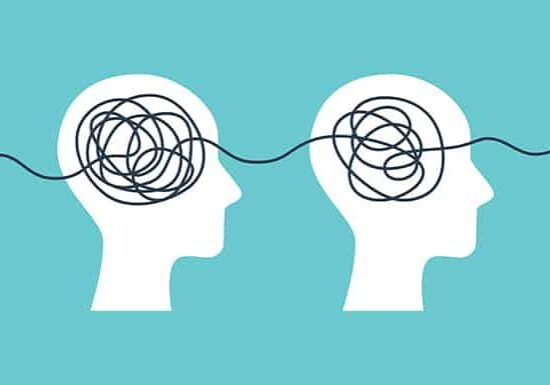All About an INFP Personality!
Updated: June 19, 2024
Published: September 28, 2021

People have multifaceted personalities. While it is hard to define any one human with just four words, the Myers-Briggs Type Indicator (MBTI) instrument can help anyone better understand how they see the world and make decisions. The four tendencies are not meant to be adjectives, but rather ways by which peoples’ personality come into play on an individual and social level. There are 16 different typologies. In this article, we will dive deeply into the INFP personality.
We’ll touch on the INFP meaning, INFP careers, and even INFP famous people.
What is the Myers-Briggs Type Indicator?
The Myers-Briggs Type Indicator (MBTI) was created by Katherine Cook Briggs and her daughter, Isabel Briggs Myers. While neither were formally educated in psychology, they taught themselves about psychometric testing and created the typology to assess and define human perception.

What is the INFP Personality?
INFP stands for Introversion – Intuition – Feeling – Perceiving.
The four psychological scales of the MBTI are:
- Extroversion – Introversion
- Sensing – Intuition
- Thinking – Feeling
- Judging – Perceiving
The INFP combination is known as the “mediator.” Mediators are known to be creative daydreamers who are highly sensitive and attuned to their surroundings. Given their intuitive and feeling nature, they generally will have intense emotional responses to nature, art, music, and those who surround them.
Their idealistic state of mind makes them nonconformists who have a strong desire to heal and nurture. Since they seek truth and often get lost in ideas, they’d rather lead than follow the crowd. They are likely to spend time exploring their own purpose in life and finding ways to leave a positive impact on the world.
When it comes to decision-making, they rely on emotions and have a broad focus on the bigger picture, rather than small details. It’s not uncommon that they’ll delay making serious decisions in the event the situation changes. When they do come to a decision, it’s grounded in feelings over logic.
Key Strengths and Weaknesses of INFP
Here’s a brief overview of the strengths and weaknesses related to the INFP type:
Strengths
- Can work well individually
- Cares deeply about others
- Highly sensitive
- Loyal
- Dedicated
- Can see the big picture
Weaknesses
- Very idealistic
- Likely to take things personally
- Misses details
- Can be challenging to get to know
INFJ vs. INFP
There’s another Myers-Briggs personality that is very similar to INFP, and that’s INFJ. However, the difference between P (perceiving) and J (judging) can make quite the difference.
Both personality types tend to be introverted, creative, and possess a desire to help others. Although it can be confusing, the way by which their cognitive functions come into play are opposite from one another.
INFJs express themselves in the world primarily from their introverted intuition, which is known as a perceiving function. A perceiving function is exploratory, rather than judging, which is focused on arriving at conclusions. Since an INFJ is primarily introverted, they end up expressing their judging personality outwardly instead (hence the “J” in INFJ). This makes an INFJ come off as highly structured and analytical to others.
INFPs lead with a judging function, but express their perceiving/extroverted intuition. This is the exact opposite from an INFJ. INFPs will let others see their perceiving features (i.e. be seemingly open and exploratory). So, they come off as more spontaneous and artistic, even though they are arriving at conclusions internally.
Thus, INFJs will come off as structured and analytical whereas INFPs will seem more spontaneous and artistic.
INFPs are highly attuned with their own feelings because this function is introverted. This can come across beautifully in their endeavors like art and writing.
INFJs, on the other hand, are likely to absorb others’ feelings as their own because they are so empathetic and attuned to others. This is what leads many to choose careers in fields like therapy, social work, and counseling.
How Common is the INFP Personality Type?
Data shows that the INFP personality type makes up just 4% of the overall population.
The most common personality typology is ISFJ. The data shows that this type represents 13.8% of the tested population.
The MBTI works through a self-report questionnaire that results in the identification of your Myers-Briggs personality type.
Ideal Career Paths for INFP
So, if you’ve completed a Myers-Briggs questionnaire and find that you are an INFP, can it help you narrow down the career path you should pursue?
While these recommendations aren’t a one-size-fits-all type of deal, these suggested paths can work well for you because of how you may see the world and prioritize aspects of life.
Due to their creative and introverted nature, many INFPs work better alone and in fields that allow them to express their feelings. INFPs are often also interested in learning about how others see the world and assign values.
For these reasons, this list of popular INFP careers tends to make sense and align well:
Graphic Designer
Graphic designers create visual concepts either by hand or digitally. When hired by businesses, graphic designers are tasked with creating or enhancing its visual identity to boost brand awareness.
Social Worker
Social workers support people in need with advice and resources to solve problems and ailments, including: substance abuse, domestic violence, mental health issues, neglect, and more.
Counselor
Counselors are qualified professionals who can work in a variety of settings to help people manage and overcome emotional and mental distress or issues. They may provide treatment plans, listen to their patients, and help them develop strategies to cope.
Artist
Artists express themselves in a variety of mediums, from painting, to drawing, animation, and more. The choice is yours!
Writer
Like artists, writers can focus on a variety of forms and disciplines. Writers may work as journalists, copywriters, authors, and the like.
Psychologist
Psychologists utilize theories and methods to treat and evaluate patients with mental disorders. They provide treatment, support, and therapies to aid.
Librarian
Librarians are responsible for issuing, collecting, and organizing resources in libraries, including: books, films, and audio files. They may work in public libraries, museums, or in schools.
Final Thoughts
While the INFP personality is the ninth most common on the list, there are some notable INFP famous people, who include: Kurt Cobain, John Lennon, Audrey Hepburn, Princess Diania, William Shakeshpeare, and Helen Keller. Interestingly, Isabel Briggs Myers (who you will remember from the top of this article as being one of the creators of MBTI) is also an INFP.
The Myers-Briggs questionnaire can be taken online for free. Once you find out your personality typology, you’ll be presented with information about common traits, relationship tendencies, career paths, and more interesting tidbits.
